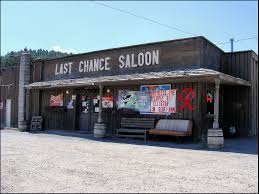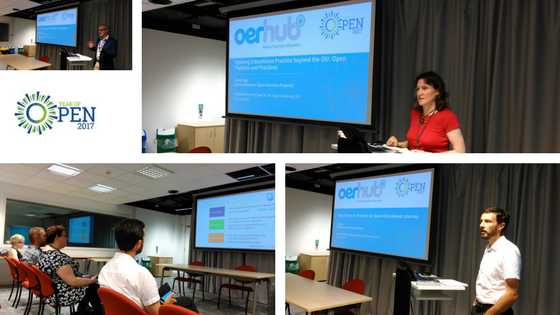I’ve been spending quite a bit of time recently thinking about the role of ethics in both the work that we do in OER Research Hub, educational research more generally, and how we might deal with the specific challenges raised by a commitment to working ‘in the open’. So this blog post is to try and frame some of the key questions ahead of a more final write-up. I’ve also attended a few events recently to help me focus on the key issues. (I’ve blogged these on my personal site openmind.ed.)
There are a few related bits of work here for me. I’m contributing our forthcoming School of Open course on open research by authoring the sections on ethics. We’re at a point in the project where we need re-draft our Ethics Manual in order to reflect a better understanding of the kinds of things that have happened in practice rather than what we thought might happen at the start of the project. The complications that can result from a commitment to ‘openness’ are not always obvious at first sight. Furthermore, there’s a real tendency to try and be as ‘safe’ as possible when thinking about how you’re going to do research. In practice, this often means resorting back to a familiar, ‘safe’ zone provided by institutional guidelines. We are now 18 months into the project and we have a lot of experience to draw on. But how does openness then make an ethical difference (if at all)?
What’s openness got to do with it?
So we’re trying to work out what difference openness can make to ethics. One of the issues here can be a lack of clarity about what ‘openness’ is supposed to connote. It certainly seems to mean different things to different people. There are also different ‘levels of openess’ that can be observed. Consider the range of scenarios described in the following chart.
We could probably sketch something similar to illustrate the range of ‘open’ and ‘closed’ research scenarios that exist. The ‘closed’ scenario would be any one where all variables are controlled within an institutional environment without results being shared with anyone. But what does research that is carried out completely ‘in the open’ look like? I got a taste of this last week at the Guerilla Research workshop. Martin Weller and Tony Hirst spoke about a range of digital scholarship projects like a meta educational technology journal based on aggregation of open articles; MOOC research by Katy Jordan; an app built at the OU; DS106 Digital Storytelling – these have elements of what is being termed ‘guerrilla research’. These include:
- No permissions (open access, open licensing, open data)
- Quick set up
- No business case required
- Allows for interdisciplinarity unconstrained by tradition
- Using free tools
- Building open scholarship identity
- Kickstarter / enterprise funding
If you’re acting entirely outside of institutional constraint then you can be a lot freer and more creative in the way that you gather data. These kinds of initiatives can lead to more traditional forms of funding and publication; and the two at least certainly co-exist. But these kinds of activities are not always institutionally recognised, giving rise to a number of issues:
- Intellectual property – will someone steal my work?
- Can I get institutional recognition?
- Do I need special technical skills?
- What is the right balance between traditional and digital scholarship? (Is there a right balance?)
- Ethical concerns about the use of open data – can consent be assumed? Even when dealing with personal or intimate information?
So a starting point for thinking about ‘ethics in the open’ is the difference between research carried out in institutions and ‘guerilla’ research using publicly available data and a bit of creativity. One way I find helpful to think of this is that when working within institutions a lot of the moral framework is provided by what you are allowed to do – so you can kind of defer judgment about any ethical issues since it becomes a choice for the ethics panel and you just abide by their judgments. But when working in a fully open way – e.g. harvesting public data, putting this together into a mashup and then posting on your blog – such authority may not be available.
Inside and Outside the Institution
In practice there are probably very few researchers out there who have no institutional connection whatsoever. So most of the time we are dealing with degrees of openness which are relative to context. This can make it additionally hard to prescribe the kind of behaviours that should be considered morally acceptable since the specifics of each scenario can be quite different. Our project aspires to be as open as it can be all of the time, but we are still bound by the institutional rules at The Open University which means that our research had to be approved by the Human Research Ethics Committee before it could take place. This is the case in most research institutions, and there are generally good reasons for this even if it can sometimes impede innovation. You only have to look at some of psychology’s more morally dubious experiments to realise that requiring research involving human (or animal) research to undergo this kind of approval is typically required.
Usually this takes the form of adhering to the ethical guidelines set out by one of the advisory bodies that exists for almost every public entity that might be doing some research at some point (e.g. the guidance published by BERA or NIH). Most of these run roughly the same way because they all take their lead from the model of medical research in the form of the Helsinki Declaration (composed in 1964, partly as a response to the unethical research practices that surfaced in the aftermath of World War II. Institutional Review Boards – the term used to describe institutional research ethics approval committees in the USA – are a direct descendent of this declaration.
Central to most institutional research ethics are guidelines relating to all stages of the research process and what can and can’t be done. The BERA guidelines, for instance, set out formal guidelines for:
- Who/what you should respect (people, knowledge, democracy, freedom, quality research)
- Your responsibilities to participants (generally, respect them and allow them the right to withdraw)
- What informed consent is and how to achieve it
- Use of data (confidentiality, especially with sensitive information)
- Working with vulnerable people
- Security of collected data
- Obligations to research sponsors
- Responsibilities to the wider research community
- The need for a process of dealing with unexpected detriment
I’ll be writing in the new draft of the ethics manual about the ways in which OER Research Hub has dealt with the ethical issues that have arisen in the life of the project. But at the moment by take on it is basically that most of this guidance is sound when it comes to open research as well. But the difference that openness can make is that in the removal of institutional perameters some of the control researchers have over what is happening can be lost.
Open Ethics: Rules or Principles?
While training as a philosopher I was particularly interested in ethics; at one point I considered making it my specialisation (before I got sidetracked into normativity and critical theory). As a student I had no need to get my work through an ethics panel because I wasn’t collecting data from people. But I probably spent more time than most of the science grads really thinking – and I mean really thinking – about the nature of ethical obligation. I also taught the subject for a few years. It’s a notoriously difficult subject for most to get their head around (even within a philosophy curriculum) largely because it forces you to challenge deeply held assumptions about right and wrong.
Now, it goes without saying that anyone doing open research should abide by the principles of ethical research as set out in institutional guidelines. They exist for a reason. Minimally, we’re talking about things like:
- Informed consent
- Respect for persons
- Minimising Harm
A researcher working in a traditional institution might not have to worry too much about these things because they are kind of taken care of by standard academic procedure. I’m not trying to imply that most researchers don’t think about it – rather that working outside an institution puts all the obligation on the individual. And for research in the open we can be dealing with situations where the full implications of open dissemination, etc. might not be fully understood. It might be that ten years from now some openly licensed data could be used for some nefarious purpose like working out who to give expensive insurance premiums to, or to publicly identify people who have had gender realignment, or whatever. Does this mean the original data release was unethical? Not in my opinion. But there may in future emerge a special set of rules and codes of conduct around the ethical use of open data aggregation.
Given that we can’t always fully anticipate the specifics of future situations it’s especially important for open researchers to be aware of future possibilities. There is a real need for using one’s own judgment and reflecting on the ethical dimensions of research for oneself. When working in the open – potentially beyond institutional reach – an awareness of ethical principles and how they should be applied is essential. In completely open or ‘guerilla’ scenarios it’s probably true that these principles are the most important thing since there are no ‘rules’ to follow other than the law.
Generally speaking, we can say it’s not enough to simply get institutional ethical approval at the start of a project. Institutional approvals typically focus on protection of individuals rather than groups and research activities can change significantly over the course of a project. In addition to anonymising data there is a case for making it difficult to reconstruct the entire data set so as to stop others from misuse. Increasingly we don’t even know who learners are (e.g. MOOC) so it’s hard to reasonably predict the potential outcomes of an intervention.
I’ll conclude these thoughts with some key questions for an ethics of open research (really interested in thoughts from others on these):
- What kind of ethical responsibilities to we have to research subjects ‘in the open’?
- Are these responsibilities distinct from the obligations we might have to research subjects more generally?
- Does working with openly licensed data relieve us of some ethical responsibility to subjects? Or does it simply relocate it?
- When can we describe consent as ‘informed’ if we are committed to open dissemination of results and/or data?
- What extra precautions might open research need to take (if any)?
- How much responsibility should we take for what happens to data after it is openly published?






Leave A Comment